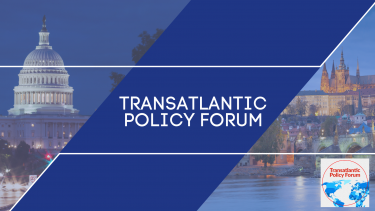EU MONITOR | THREE RESPONSES TO DISINFORMATION IN THE EUROPEAN UNION
Disinformation and foreign interference have been concerns in global politics for centuries, but social media algorithms have made the current threat more dire as they amplify content based on human frailties such as our obsession with negativity and outrage. Russian interference in the 2016 US federal election and other elections and referenda in at least twenty countries between November 2016 and April 2019, including the Brexit referendum, the French and German elections, and the Ukrainian power grid cyber-attacks, have highlighted the potential for foreign governments to alter the results of an election or undermine democracies using social media and other means. Writes Jakub Ferenčík in his last EU MONITOR.
Show more PDF
iDNES: The EU will turn off your appliances. Lies about the Green Deal have taken over the internet in the Czech Republic
Our junior researcher Tatiana Mindeková conducted an analysis of the narratives around the Green Deal in the Czech and Slovak information scene. What kind of misinformation about the EU climate policy is being voiced in mainstream and alternative media? Tatiana Mindeková commented on the results of her research for iDNES.cz.
Show moreiDNES: EU vám vypne spotřebiče. Lži o Green Dealu ovládly internet v Česku
Naše juniorní výzkumná pracovnice Tatiana Mindeková vypracovala analýzu, ve které se věnuje narativům ohledně Zelené dohody na české a slovenské informační scéně. Jaké dezinformace týkající se klimatické politiky Evropské unie zaznívají v mainstreamových i alternativních médiích? Výsledky svého zkoumání Tatiana Mindeková komentovala pro iDNES.cz.
Show moreBLOG | European Media Freedom Act on the case of Slovenia: Has Slovenia overtaken the European Commission with its new law?
In September 2022, the European Commission put forward a proposal for a new media regulator - the European Media Freedom Act. Slovenia is one of the most struggling EU countries in terms of media freedom and independence. In the summer of 2020, the Janša government proposed a media-focused law that would increase the state's influence over Slovenia's national press agency and limit its funding of the public broadcaster RTV. Has Slovenia's new law put the European Commission ahead of the game? That is what our intern Klára Landová discusses in her blog.
Show moreBLOG | European Media Freedom Act on the case of Slovenia: Has Slovenia overtaken the European Commission with its new law?
V září roku 2022 předložila Evropská komise návrh nového regulátoru médií - Evropský akt o svobodě sdělovacích prostředků. Slovinsko je jednou ze zemí EU, která nejvíce bojuje se svobodu v médiích a jejich nezávislosti. V létě 2020 navrhla Janšova vláda zákon zaměřený na média, který by měl zvýšit vliv státu na slovinskou národní tiskovou agenturu a omezit její činnost financování veřejnoprávní televize RTV. Předběhlo Slovinsko svým novým zákonem Evropskou komisi? Tím se ve svém blogu zabývá naše stážistka Klára Landová.
Show moreReport | Monitoring of the EU's Green Policies: Perceptions and Narratives in the Czech and Slovak Information Space
The European Green Deal is the core of the current climate strategy of the European Union, which has set the goal of making Europe a carbon-neutral continent by 2050. In an effort to monitor and counter disinformation narratives about the deal, IRI's Beacon project launched an initiative called the “European Green Deal: Mapping perceptions in Central and Eastern Europe,” in which six partner organizations studied how the deal is perceived in Bulgaria, Czechia, Poland, Romania, and Slovakia. Our project manager and juniour researcher, Tatiana Mindeková, analyzed narratives spread about the Green Deal and the EU’s green policies through Czech chain emails as well as through selected mainstream media and websites known for spreading disinformation.
Show more PDFReport | Monitoring of the EU's Green Policies: Perceptions and Narratives in the Czech and Slovak Information Space
Evropská zelená dohoda je jádrem současné klimatické strategie EU, která si stanovila za cíl učinit z Evropy do roku 2050 uhlíkově neutrální zemi. Ve snaze monitorovat a potírat dezinformační narativy o Zelené dohodě zahájil Beacon project vedený International Republican Institute iniciativu nazvanou "European Green Deal: Mapping perceptions in Central and Eastern Europe", v jejímž rámci šest partnerských organizací zkoumalo, jak je dohoda vnímána v Bulharsku, Česku, Polsku, Rumunsku a na Slovensku. Naše projektová manažerka a juniorská výzkumnice Tatiana Mindeková analyzovala narativy šířené o Zelené dohodě a zelené politice EU prostřednictvím českých řetězových e-mailů i vybraných mainstreamových médií a webových stránek známých šířením dezinformací.
Show more PDFTransatlantic Policy Forum 2022 - Overview
Transatlantic Policy Forum (TAPF) is a closed-door summit for decision-makers and opinion-formers co-organised by EUROPEUM Institute for European Policy with partners. TAPF has been held in Prague every Autumn since 2018 under the auspices of the Ministry of Foreign Affairs of the Czech Republic.
Show more
Transatlantic Policy Forum 2022 - přehled
Transatlantic Policy Forum (TAPF) je uzavřený summit pro veřejné činitele a tvůrce veřejného mínění organizován Institutem pro evropskou politiku EUROPEUM s partnery. TAPF se od roku 2018 koná v Praze každý podzim pod záštitou Ministerstva zahraničních věcí České republiky.
Show more
Blog | European Media Freedom Act
In her blog, our intern Leonor Tavares focuses on the new European media freedom act. Independent media as a means of freedom of expression is under threat in some EU member states and is being used for political propaganda or is being shut down altogether. The new law should ensure that public service media provide a plurality of information in an impartial manner, while regulating their funding and the acquisition and protection of journalistic sources.
Show more PDFStaroměstské náměstí 4/1
Prague 1 - Staré Město
110 00
tel.: +420 212 246 552
email: europeum@europeum.org
https://www.europeum.org







